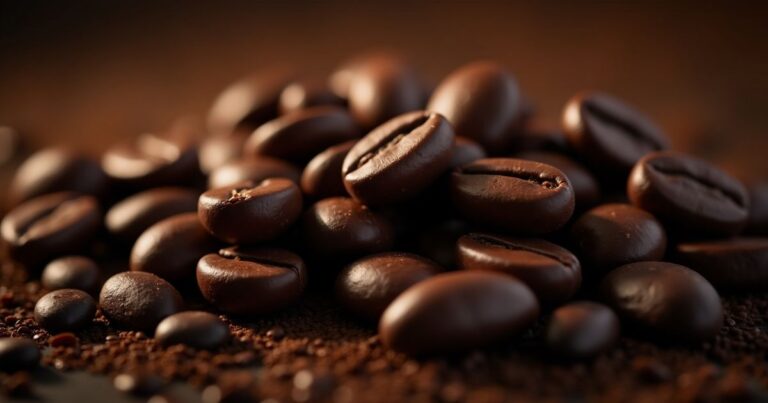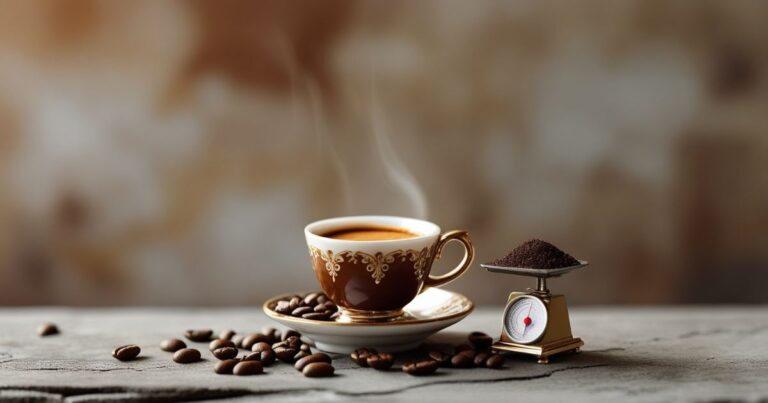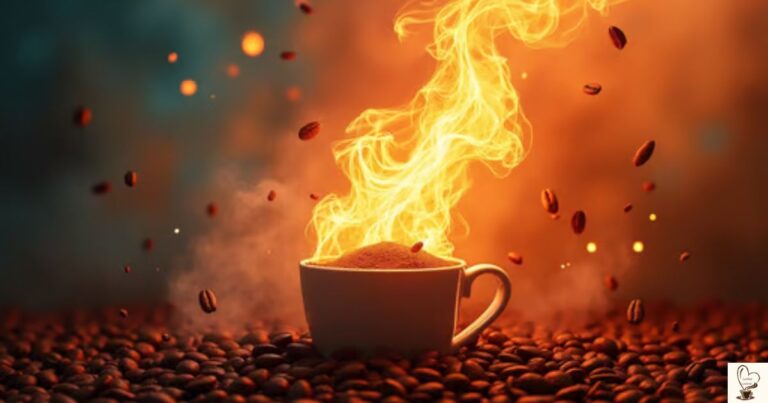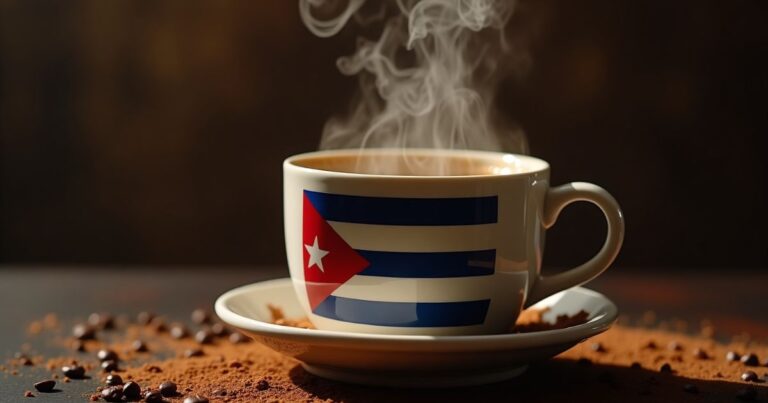How Much Caffeine Is in Black Tea? A Complete Guide to Benefits & Effects
Black tea is one of the most popular beverages worldwide, known for its bold flavor and stimulating effects. Many tea drinkers wonder, How much caffeine is in black tea? and how it compares to coffee or other tea.
We will explore the amount of caffeine in black tea, the factors that influence its potency, and why it matters for your health and daily routine.
How Much Caffeine Is in Black Tea?
On average, a cup of black tea contains between 30 to 90 mg of caffeine, depending on the variety, preparation method, and steeping time. This means black tea falls between green tea and coffee in terms of caffeine content.

Black tea has more caffeine than green tea but much less than coffee. This makes it a good choice for people who want to reduce their coffee intake while still getting some caffeine.
If you’re also wondering about other tea varieties, Does Sweet Tea Have Caffeine? is another common question among tea drinkers.
Caffeine Content in Different Types of Tea (Per 8 oz Cup):
- Black Tea: 30-90 mg
- Green Tea: 20-45 mg
- White Tea: 15-30 mg
- Oolong Tea: 30-70 mg
- Herbal Tea (Chamomile, Peppermint): 0 mg (naturally caffeine-free)
The amount of caffeine in black tea can vary widely based on brewing techniques, the type of tea, and whether you use loose-leaf tea or tea bags.
If you’re wondering, “Is black tea stronger than coffee?”, the answer is no, coffee contains 95-200 mg of caffeine per cup, making it significantly stronger.
Factors Affecting Caffeine in Black Tea
Several factors affect how much caffeine is in your cup of black tea, including:
Tea Type & Origin
Certain black teas, such as Assam, Darjeeling, and Ceylon, naturally contain higher caffeine levels due to climate, soil, and growing conditions.

Assam black tea, for instance, is known for its strong and malty flavor, and it typically contains more caffeine than a lighter Darjeeling tea.
Loose Leaf vs. Tea Bags
Loose-leaf black tea generally has a higher caffeine content compared to commercial tea bags.

This is because tea bags often contain broken or crushed leaves that release caffeine quickly, but loose-leaf tea contains more intact leaves, which provide a stronger, slower release of caffeine.
Brewing Time & Temperature
The longer you steep your black tea, the more caffeine it will contain. A tea steeped for 1-2 minutes will have less caffeine than one steeped for 5 minutes or more. Similarly, brewing at higher temperatures (near boiling) extracts more caffeine from the tea leaves.
Tea Grade & Processing
Tea that has been finely processed, such as CTC (Crush, Tear, Curl) black tea, often releases more caffeine than whole-leaf black teas. This is because smaller particles infuse faster and release caffeine more quickly than whole leaves.
Black Tea vs. Coffee: Caffeine Comparison
Many people ask, “Is black tea stronger than coffee?” While black tea does contain caffeine, it has significantly less than coffee.
| Beverage | Caffeine Content (Per 8 oz Cup) |
|---|---|
| Coffee | 95-200 mg |
| Black Tea | 30-90 mg |
| Green Tea | 20-45 mg |
| Espresso (1 oz shot) | 63 mg |
| Energy Drinks | 80-200 mg |
Though coffee has more caffeine, black tea contains L-theanine, an amino acid that helps reduce caffeine’s harsh effects, promoting calmness and focus without the jitters.
This makes black tea a better coffee alternative for those who want a more balanced energy boost.
Health Benefits of Black Tea Caffeine
The moderate caffeine levels in black tea offer a range of science-backed health benefits that support both mental and physical well-being. Unlike coffee, which delivers a quick jolt of energy followed by a crash.

Black tea offers a steady energy boost from L-theanine, which improves caffeine’s benefits and minimizes side effects. Incorporating black tea into your daily routine can yield various health advantages.
Boosts Mental Alertness & Focus
If you need a mental boost without the jitters, black tea is an excellent choice. The combination of caffeine and L-theanine in black tea works synergistically to:
- Improve cognitive function by enhancing brain activity.
- Increase alertness and concentration without overstimulating the nervous system.
- Reduce mental fatigue by providing a steady release of energy.
- Enhance memory and problem-solving skills due to better blood flow to the brain.
Unlike coffee, which can lead to a sudden spike and crash in energy levels, black tea provides a longer-lasting and more stable boost in focus and concentration, making it a great beverage for work, studying, or staying productive throughout the day.
Supports Heart Health
One of the most significant benefits of black tea is its ability to support heart health. It is rich in flavonoids, which are antioxidants that play a key role in maintaining a healthy cardiovascular system. Studies suggest that drinking black tea regularly can:
- Reduce the risk of heart disease by lowering bad cholesterol (LDL) levels.
- Improve blood circulation and prevent blood clot formation.
- Regulate blood pressure, reducing the risk of hypertension.
- Lower triglycerides, which are harmful fats in the blood.
A study published in the European Journal of Preventive Cardiology found that people who drink at least two cups of black tea daily have a lower risk of heart disease and stroke compared to non-tea drinkers. This makes black tea an excellent heart-friendly beverage to include in your diet.
Aids Weight Loss & Metabolism
If you’re looking for a natural way to support weight loss, black tea can be a valuable addition to your diet. The caffeine in black tea acts as a metabolism booster, helping your body burn fat more efficiently. Here’s how black tea contributes to weight management:
- Increases calorie burning by stimulating thermogenesis (the process by which the body generates heat and burns calories).
- Enhances fat oxidation, meaning it helps break down stored fat more efficiently.
- Reduces appetite and helps control cravings, preventing overeating.
- Improves gut health, which plays a role in digestion and weight regulation.
A study published in the Journal of Nutritional Biochemistry found that black tea polyphenols alter gut bacteria in a way that promotes fat loss. Additionally, black tea is zero-calorie when consumed without sugar or milk, making it a perfect alternative to sugary beverages that contribute to weight gain.
Contains Powerful Antioxidants
Antioxidants are essential for protecting the body from free radical damage, which can cause inflammation, premature aging, and chronic diseases. Black tea is packed with polyphenols and catechins, which offer numerous health benefits:
- Fights oxidative stress, reducing the risk of diseases like cancer and diabetes.
- Supports skin health by preventing cell damage that leads to wrinkles and dull skin.
- Strengthens the immune system, helping your body fight infections and illnesses.
- Improves liver function, reducing the effects of toxins and pollutants.
One of the key antioxidants found in black tea is theaflavins, which are unique to black tea and have been shown to reduce inflammation and improve overall health. Including black tea in your daily routine can significantly boost your body’s defense against various diseases.
Supports Digestive Health
A lesser-known benefit of black tea is its ability to promote gut health. The polyphenols in black tea help:
- Encourage the growth of beneficial gut bacteria, improving digestion.
- Reduce bloating and stomach discomfort by soothing the digestive system.
- Support a balanced microbiome, which is essential for overall well-being.
Drinking black tea after meals can help with digestion and prevent bloating, making it a great addition to a balanced diet.
May Lower the Risk of Type 2 Diabetes
Research suggests that regular black tea consumption may play a role in regulating blood sugar levels and reducing the risk of type 2 diabetes. The antioxidants in black tea help improve insulin sensitivity, which means your body can use glucose more effectively. This can lead to:
- Better blood sugar control after meals.
- Reduced risk of insulin resistance, which is a key factor in diabetes development.
- Lower fasting blood glucose levels over time.
A study published in the Asia Pacific Journal of Clinical Nutrition found that drinking three or more cups of black tea per day was associated with a lower risk of developing type 2 diabetes.
Reduces Stress & Promotes Relaxation
Black tea is often associated with calmness and relaxation, despite its caffeine content. This is due to the presence of L-theanine, which has a soothing effect on the brain. Unlike coffee, which can increase anxiety and overstimulation, black tea helps:
- Reduce stress levels by promoting relaxation without drowsiness.
- Enhance mood by increasing dopamine and serotonin levels.
- Improve sleep quality when consumed in moderation during the day.
A study from the University College London found that people who drank black tea regularly experienced lower stress levels compared to those who did not.
Side Effects of Caffeine in Black Tea
While black tea is often considered a healthier alternative to coffee, excessive consumption can lead to unwanted side effects due to its caffeine content.
Although moderate caffeine intake can improve focus, metabolism, and energy levels, consuming too much black tea may result in negative effects on mental and physical health.

If you drink multiple cups of black tea per day, especially in the evening, you may experience some of the following issues:
Jitters & Anxiety – Can Black Tea Make You Anxious?
Excessive black tea consumption can cause jitters, nervousness, and anxiety due to its caffeine content. Caffeine stimulates the heart and central nervous system. Although L-theanine in black tea mitigates some of caffeine’s effects, overconsumption may still result in negative feelings.
- Increased heart rate and palpitations
- Feelings of nervousness and restlessness
- Difficulty concentrating due to overstimulation
- Heightened stress levels
High caffeine intake can exacerbate anxiety symptoms. To mitigate this, limit black tea to 2-3 cups daily and avoid consuming it near bedtime.
Insomnia – Can Black Tea Disrupt Sleep?
Caffeine disrupts sleep by blocking adenosine receptors, making it difficult to fall asleep and decreasing sleep quality. Drinking black tea at night can exacerbate these effects.
- Difficulty falling asleep
- Frequent awakenings during the night
- Reduced sleep duration
- Feeling tired and sluggish the next day
Black tea has less caffeine than coffee but can still disrupt sleep, especially for caffeine-sensitive individuals. To improve sleep quality and manage insomnia, it’s advisable to avoid drinking black tea 4-6 hours before bedtime.
Can Caffeine Cause Dizziness? may also be a concern for those sensitive to caffeine’s effects. Instead, opt for caffeine-free herbal teas like chamomile or peppermint, which promote relaxation and sleep.
Digestive Issues – Can Black Tea Cause Stomach Problems?
While black tea can aid digestion when consumed in moderation, too much caffeine can irritate the stomach lining, leading to acid reflux, heartburn, and digestive discomfort. This is because caffeine:
- Stimulates stomach acid production, which can lead to acid reflux or indigestion.
- Can cause nausea when consumed on an empty stomach.
- May worsen symptoms of gastritis or ulcers in people with pre-existing stomach issues.
If you have a sensitive stomach or experience acid reflux, try:
- Drinking black tea with food instead of on an empty stomach.
- Limiting steeping time to avoid an overly strong brew.
- Switching to a milder tea, such as oolong or white tea, which have lower caffeine levels.
Other Possible Side Effects of Excessive Black Tea Consumption
In addition to the main side effects listed above, drinking excessive amounts of black tea can also lead to:
Iron Absorption Issues: Tannins in black tea hinder iron absorption from plant foods, posing risks for those with iron deficiency anemia. To minimize this issue, it’s advisable to refrain from consuming black tea during iron-rich meals.
Headaches: Moderate caffeine consumption can alleviate headaches, but excessive intake may trigger headaches or withdrawal symptoms upon cessation.
Increased Blood Pressure: Some studies indicate that black tea might aid in blood pressure regulation, but high caffeine intake can lead to temporary increases in blood pressure, particularly for those sensitive to caffeine.
Caffeine Dependence: Regularly consuming large amounts of black tea can lead to caffeine dependence, making you feel tired or irritable when you don’t have your usual cup of tea.
How to Reduce Caffeine in Black Tea Naturally
To enjoy black tea with less caffeine, consider practical methods to lower its caffeine levels while retaining flavor and health benefits.
1. Use a Shorter Steeping Time (1-2 minutes instead of 5+ minutes)
The longer you steep black tea, the more caffeine is extracted from the leaves. To naturally reduce caffeine intake, steep your tea for just 1-2 minutes instead of 5+ minutes.
This will result in a milder brew with significantly less caffeine while still preserving the tea’s rich taste and beneficial antioxidants.
2. Choose Decaffeinated Black Tea (Contains only 2-5 mg of caffeine per cup)
For those looking to cut caffeine almost completely, decaffeinated black tea is the best option. While it still contains a small amount of caffeine (around 2-5 mg per cup), it is significantly lower than regular black tea.

Decaffeinated black tea undergoes a special process to remove most of the caffeine while retaining its flavor and health benefits.
3. Opt for a Second Steep (The second infusion contains significantly less caffeine)
To reduce caffeine in black tea, steep the same leaves a second time. Most caffeine is released during the first brew, so reusing the leaves lowers caffeine content while maintaining a pleasant flavor.
4. Blend with Herbal Teas (Mixing black tea with chamomile or mint tea naturally reduces caffeine content)
Blending black tea with herbal teas like chamomile or peppermint reduces caffeine and enhances flavor. This combination allows you to enjoy black tea’s taste while lowering caffeine intake, aligning with your health needs.
Conclusion
Knowing how much caffeine is in black tea can help you decide how much to drink each day. Black tea is a delightful beverage that offers a moderate amount of caffeine, typically ranging from 40 to 70 milligrams per cup, depending on the brewing time and tea variety.
This caffeine content provides a gentle energy boost, making it an ideal choice for those looking to enhance their focus without the jitters often associated with coffee.
FAQs
How Much Caffeine is in Black Tea vs Coffee?
A cup of black tea contains around 50 milligrams of caffeine.
The exact amount varies based on the type of tea, steeping time, and preparation. Black tea has more caffeine than green tea but less than coffee.
Is 47mg of Caffeine a lot?
47 mg of caffeine is a moderate amount and generally not considered high. For adults, the recommended safe limit is less than 400 mg per day.
It’s much lower than a typical cup of coffee, which has around 95 mg or more.
Will Black Tea Keep me Awake?
Black tea contains caffeine, which can interfere with sleep.
Any caffeine consumed close to bedtime can keep you awake.
It’s best to avoid black tea at least 4-6 hours before sleep.
Is 200 mg of Caffeine a Lot?
200 mg of caffeine is generally safe for healthy adults.
It doesn’t cause significant harmful effects when consumed in moderation.
The daily recommended caffeine limit is 400 mg for most adults.
How Much Caffeine in a Day is Unsafe?
Consuming more than 600 mg of caffeine per day is considered unsafe.
High intake may lead to insomnia, anxiety, and increased heart rate.
The recommended daily limit for adults is 400 mg or less.
Why am I Sleepy After Drinking Black Tea?
Black tea contains theanine, which has calming and relaxing effects.
Theanine can counteract caffeine, making you feel sleepy instead of alert.
This effect is more noticeable in people sensitive to relaxing compounds.
What is the Healthiest Form of Caffeine?
Tea is considered one of the healthiest sources of caffeine.
It provides a balanced energy boost with antioxidants and L-theanine.
Unlike coffee or energy drinks, tea offers smoother, longer-lasting energy.







